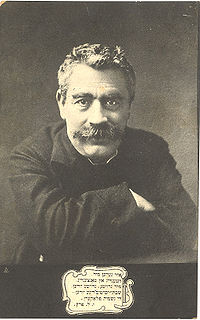A Quote by Bill Nye
History is but the record of the public and official acts of human beings. It is our object, therefore, to humanize our history and deal with people past and present; people who ate and possibly drank; people who were born, flourished and died; not grave tragedians, posing perpetually for their photographs.
Related Quotes
If Mother Culture were to give an account of human history using these terms, it would go something like this: ' The Leavers were chapter one of human history -- a long and uneventful chapter. Their chapter of human history ended about ten thousand years ago with the birth of agriculture in the Near East. This event marked the beginning of chapter two, the chapter of the Takers. It's true there are still Leavers living in the world, but these are anachronisms, fossils -- people living in the past, people who just don't realize that their chapter of human history is over. '
The United States of America was the first place on earth where average people had the opportunity to become the greatest among all people. It was the first time in human history where people were allowed to pursue the best of their abilities to whatever desire they wanted, because it was a nation founded under the concept of human beings being born free.
The past history of human belief is a cautionary tale. We have killed thousands of our fellow human beings because we believed they had signed a contract with the devil, and had become witches. We still kill more than a thousand people each year for witchcraft. In my view, there is only one hope for humankind to emerge from what Carl Sagan called "the demon-haunted world" of our past. That hope is science.
The Seascapes are before human beings and after human beings. The Seascapes were there before our presence, and when our civilization is over, seascapes will still exist. Our presence is temporary. Civilization is only 5,000 to 6,000 years. The history of ours, the material history of consciousness, is rather short.
I feel history is more of a story than a lesson. I know this idea of presentism: this idea of constantly evoking the past to justify the present moment. A lot of people will tell you, "history is how we got here." And learning from the lessons of history. But that's imperfect. If you learn from history you can do things for all the wrong reasons.
History in Burckhardt's words is 'the record of what one age finds worthy of note in another.' The past is intelligible to us only in light of the present; and we can fully understand the present only in light of the past. To enable man to understand the society of the past and to increase his mastery over the society of the present is the dual function of history.
History is not everything, but it is a starting point. History is a clock that people use to tell there political and cultural time of day. It is also a compass that people use to find themselves on the map of human geography. History tells a people where they have been and what they have been, where they are and what they are. Most important, history tells a people where they still must go, what they still must be. The relationship of history to the people is the same as the relationship of a mother to her child.
History leaves no doubt that among of the most regrettable crimes committed by human beings have been committed by those human beings who thought of themselves as civilized. What, we must ask, does our civilization possess that is worth defending? One thing worth defending, I suggest, is the imperative to imagine the lives of beings who are not ourselves and are not like ourselves: animals, plants, gods, spirits, people of other countries, other races, people of the other sex, places and enemies.
Despite our founding principles and the many ways our constitution has protected individual liberties, we do, let's admit it, have a long history of shutting people out--african americans, women, gays and lesbians, people with disabilities--and throughout our history, we have found too many ways to divide and exclude people from their ownership of the law and protection under the law.
I realized that most white Americans knew very little about our history and our struggle, and were having difficulty understanding the basis for our agitation and our resistance and our complaints. I also discovered that while black Americans had a sense of the beauty and tragedy of the journey from the time of slavery until now, we were not rooted in the specifics. I thought one way to familiarize people with that history would be through the voices of the great folk artists.





































